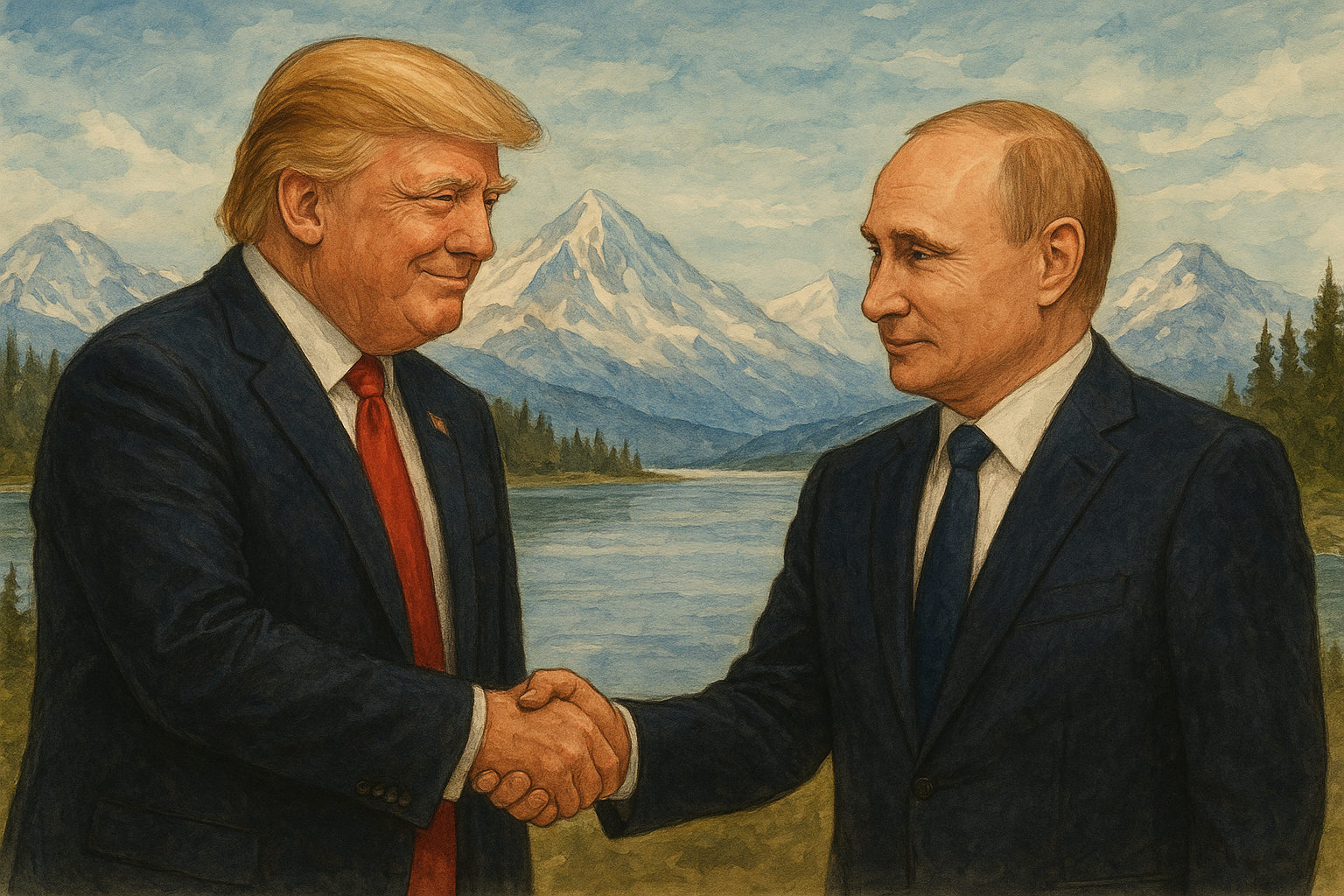
(Image created using AI)
"Straightforward," "trustworthy"—these are words that seem almost incompatible with Russia's current president, Vladimir Putin, who has now held power for nearly a quarter-century. Yet there was a time when European leaders viewed him differently—as a pragmatic partner, even a potential ally. The relationship between Russia and the EU has followed a turbulent trajectory since the Cold War, with moments of cautious cooperation overshadowed by deepening hostility, now reaching its lowest point in decades.
The deterioration did not happen overnight. The 2014 annexation of Crimea marked a turning point, but it was the full-scale invasion of Ukraine in 2022 that shattered any remaining illusions. The EU responded with unprecedented sanctions—asset freezes, trade restrictions, diplomatic isolation—while European capitals issued near-unanimous condemnations. The current climate of outright hostility makes it difficult to remember that, not so long ago, European leaders viewed Putin's Russia as a potential partner.
There was a time when the relationship held promise. In the early 2000s, Russia and the EU pursued economic partnerships, energy deals, and even limited security cooperation. Germany, under Chancellor Gerhard Schröder, deepened its reliance on Russian gas, while France’s Jacques Chirac found common cause with Putin in opposing the U.S.-led invasion of Iraq. European support for Russia's WTO accession in these years marked a moment when integration seemed possible, even as deeper conflicts remained unresolved.
The fractures in relations had been visible for years. The 2008 Georgia conflict, while drawing only muted European responses at the time, revealed Moscow's readiness to employ military force to reshape neighbouring states' borders. But the decisive break occurred in 2014, when the seizure of Crimea and the war in eastern Ukraine prompted the EU to abandon its policy of gradual engagement in favor of sanctions and diplomatic freeze. The Minsk agreements, brokered by Berlin and Paris, were meant to stabilize the situation but instead failed to implement a ceasefire. By the time Russian troops crossed the Ukrainian border in 2022, the relationship was beyond repair.
The recent summit between U.S. President Trump and Russia's Putin raises important questions about Moscow's standing with the EU and the bloc's broader strategic position. As many anticipated, the meeting yielded no substantive agreements or breakthroughs in negotiations. Several key issues remain unresolved, including the possibility of future trilateral talks involving the U.S., Russia and Ukraine on neutral territory. Without concrete follow-up steps, the summit's significance appears limited.
Attention now shifts to Monday's scheduled meeting between Putin and Ukrainian President Zelensky. The EU finds itself in a reactive position, largely dependent on U.S. leadership in shaping the Western response. According to DW's chief political editor Michaela Küfner, European security concerns mirror Ukraine's reliance on American commitments. While EU leaders welcomed President Trump's emphasis on security guarantees, the practical implementation and scope of these assurances remain uncertain.
From Moscow's perspective, the summit offered clear advantages. Analysts anticipate Russian state media will highlight the summit to reinforce Putin's international standing at home. Regarding the central question of European influence, the summit demonstrated its limited capacity to shape outcomes.
After nearly three years of conflict, the fundamental disagreements persist: Russia continues to insist on territorial concessions asa basis for negotiations, while Ukraine and its European allies maintain their refusal to cede sovereign land. Public support within the EU for military and economic assistance to Kyiv remains strong, with no significant shift in policy. The Alaska summit did not produce a breakthrough, leaving the diplomatic stalemate unresolved. While the meeting highlighted the continued distance between the warring parties, future engagements could still shape the trajectory of negotiations.